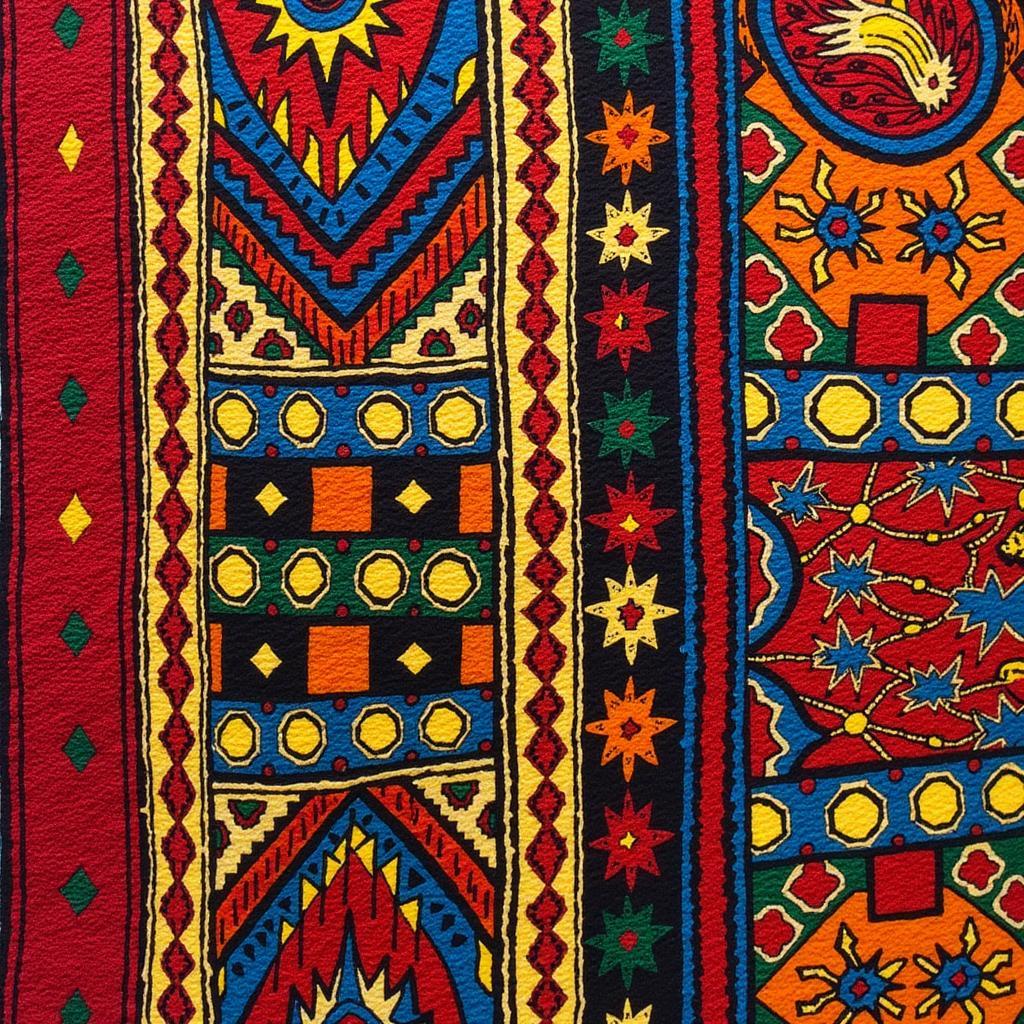Which African Country is Closest to Italian Shores?
Tunisia, situated on the northern coast of Africa, is the African Country Closest To Italian Shores. The distance between Tunisia and Italy, specifically Sicily, is remarkably short, making it a key point of interaction between the two continents throughout history.
Unveiling the Proximity of Tunisia to Italy
The Strait of Sicily, a narrow stretch of water separating Tunisia from Sicily, is at its narrowest point a mere 80 miles (approximately 130 kilometers). This close proximity has facilitated cultural exchange, trade, and unfortunately, also conflict, between the two regions for millennia. From ancient Carthaginian expansion to modern-day migration flows, the Strait of Sicily has played a crucial role in shaping the intertwined histories of Africa and Europe.
Understanding the Geographical Significance of the Strait of Sicily
The Strait of Sicily isn’t just a small body of water; it’s a significant geographical boundary separating the African and Eurasian tectonic plates. This geological distinction contributes to the diverse landscapes and ecosystems found on either side of the strait. Furthermore, the strait serves as a crucial maritime route connecting the Eastern and Western Mediterranean, influencing trade patterns and naval strategies.
The close proximity between Tunisia and Italy has also led to shared culinary traditions. Sicilian cuisine, for instance, reflects North African influences in its use of spices and ingredients like couscous.
Historical Interactions Across the Strait of Sicily
Throughout history, the narrow strait has witnessed the ebb and flow of civilizations. The Phoenicians, Romans, Arabs, Normans, and many others have crossed this maritime bridge, leaving their mark on both shores. The legacy of these historical interactions is visible in the architecture, languages, and cultural practices of the regions bordering the strait.
From Carthage to Modern Times: A History of Exchange and Conflict
The ancient city of Carthage, located in present-day Tunisia, once challenged Roman dominance over the Mediterranean. The Punic Wars, a series of conflicts fought between Rome and Carthage, highlight the strategic importance of the Strait of Sicily in controlling access to the Mediterranean. Centuries later, the strait served as a gateway for Arab expansion into Europe, contributing to the rich cultural tapestry of Sicily.
Tunisia: A Gateway to Africa
Today, Tunisia’s proximity to Europe makes it a popular tourist destination, with many Europeans choosing to explore its diverse landscapes, from the Sahara Desert to the Mediterranean coast. This geographical location also makes Tunisia a significant player in international trade and relations, serving as a bridge between Africa and Europe.
Exploring Tunisia’s Rich Cultural Heritage
Beyond its geographical importance, Tunisia boasts a rich cultural heritage, shaped by the convergence of Berber, Arab, and European influences. From the ancient ruins of Carthage to the vibrant souks of Tunis, Tunisia offers a unique blend of history, culture, and natural beauty.
“Tunisia’s strategic location has always made it a crossroads of civilizations,” says Dr. Fatima Ben Ali, a renowned historian specializing in North African history. “Its proximity to Europe has shaped its destiny, fostering both cooperation and conflict throughout the ages.”
Conclusion: Tunisia, the African Country Closest to Italian Shores
Tunisia, the African country closest to Italian shores, holds a unique position geographically and historically. The short distance across the Strait of Sicily has fostered centuries of interaction and exchange, shaping the cultural landscape of both regions. Understanding this proximity is key to appreciating the rich tapestry of history and culture that defines Tunisia and its relationship with Italy.
FAQ
- What is the shortest distance between Tunisia and Italy? Approximately 80 miles (130 kilometers).
- What body of water separates Tunisia and Italy? The Strait of Sicily.
- What historical significance does the Strait of Sicily hold? It has been a key route for trade, migration, and conflict throughout history.
- What are some key attractions in Tunisia? The ruins of Carthage, the Sahara Desert, and the city of Tunis.
- Why is Tunisia a popular tourist destination? Its proximity to Europe, diverse landscapes, and rich cultural heritage.
- How has Tunisia’s location influenced its cuisine? It has led to shared culinary traditions with Sicily, particularly in the use of spices and ingredients like couscous.
- What is the significance of Tunisia’s location in terms of international relations? It serves as a bridge between Africa and Europe, playing a significant role in trade and diplomacy.
Need assistance planning your trip to Tunisia or learning more about the fascinating history of the Strait of Sicily? Contact us! Phone: +255768904061, Email: [email protected], or visit us at Mbarali DC Mawindi, Kangaga, Tanzania. Our customer service team is available 24/7.



